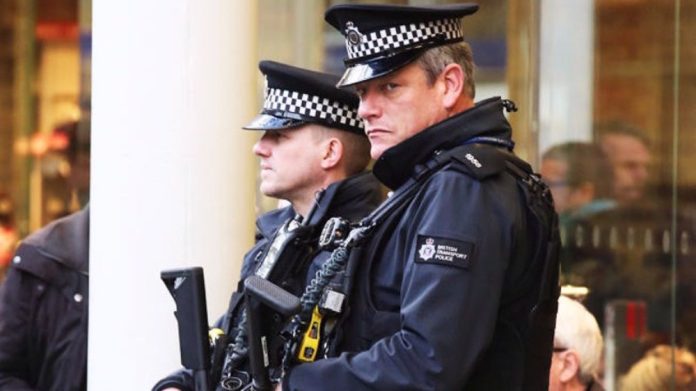Following a string of scandals that undermined public trust in British policing, the United Kingdom has unveiled new standards for the vetting of police officers.
The British Home Office released an update to the College of Policing’s Vetting Code of Practice on Thursday, saying that police chiefs would now have more tools to “root out officers unfit to serve the public.”
The UK’s largest police force, London’s Metropolitan Police Service, as well as other British forces were rocked by a number of scandals that did significant damage to them.
read more: Rape culture, racism, and impunity of the UK police
In her 363-page report from March, government official Louise Casey characterized the entire force as institutionally homophobic, misogynistic, racist, and sexist.
She was given the task of conducting the investigation after serving Metropolitan Police officer Wayne Couzens kidnapped, raped, tortured, and killed Londoner Sarah Everard two years prior.
Given a life sentence, Couzens. His conviction prompted a second woman to come forward and accuse a different officer, David Carrick, who had been found guilty of raping 12 victims over a 17-year period.
The Metropolitan Police’s failure to uphold its responsibility to vet officers and safeguard women and children was at the heart of Casey’s conclusions.
In January, the Metropolitan Police also disclosed that 1,071 of its own officers had either been charged with domestic violence or assault against women and girls or were the subject of an investigation for such offenses.
If police officers are unable to maintain the required level of vetting clearance, they may be fired under the recently announced standards. The officer’s background check will be examined in the event that the misconduct does not result in termination.
Home Secretary Suella Braverman said in a statement that “the sickening cases of David Carrick and Wayne Couzens made clear the need for vetting practices that are effective and consistent in identifying those not fit to serve.”
In an effort to ensure that any officers who have previously been relieved of duty cannot rejoin the police, the updated standards have now made vetting checks mandatory.
“Improving the standards of our officers is key to the common sense policing the public expects,” Braverman continued. For this reason, he urged the College of Policing to immediately strengthen police vetting.
Enforcing the new standards would result in “top-down culture change, which is crucial to restoring public confidence,” she claimed.
Black people are seven times more likely than white people to die after being restrained by the police, according to research conducted in February by the nonprofit organization Inquest.
A preliminary report published in October by Casey claimed that the Metropolitan Police had permitted officers to continue working despite being accused of domestic violence or racial harassment.













